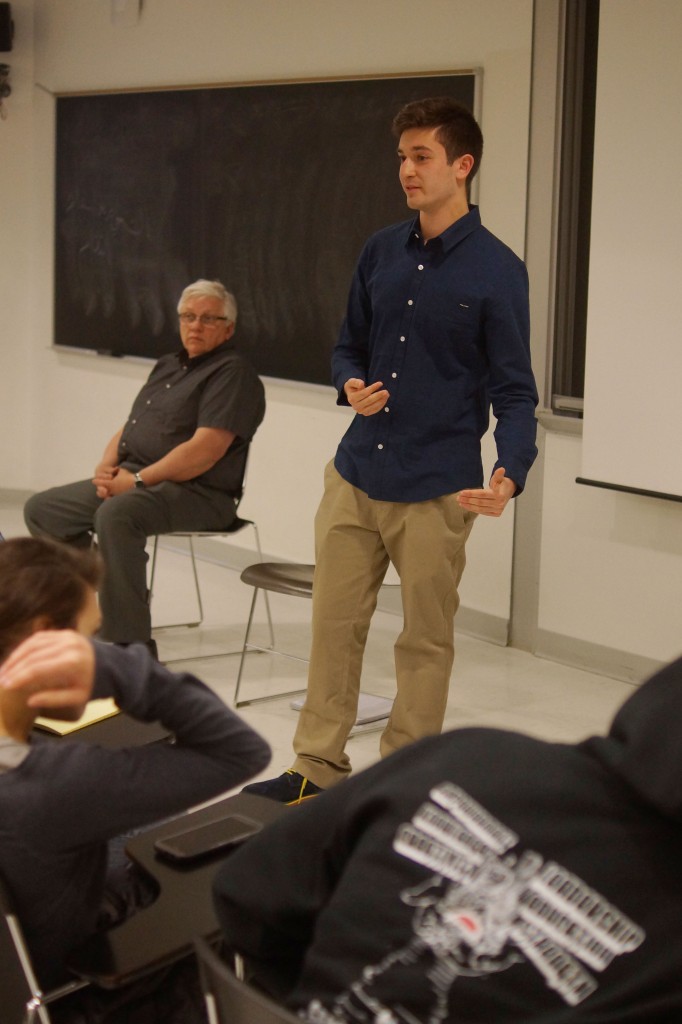
As the 2018 FIFA World Cup in Russia approaches, speakers came to Binghamton University to shed light on the dark side of the biggest sporting event in the world, and encouraged students to kick their activism into high gear.
David Cingranelli, a professor of political science at BU, and Zachary Silverman, a junior majoring in psychology, spoke at Monday night’s “The Human Cost of the World Cup.” The event, in Science Library, was hosted by the Center for Civic Engagement.
Both speakers focused on human rights violations occurring in Qatar, which is set to hold the World Cup in 2022. Silverman said that the main problem is kafala, the system of labor that is used in the country, where migrant workers are brought to Qatar from countries such as Nepal, India and the Philippines. After arriving, the workers must be sponsored by their superiors, and surrender all control over their passports and visas. Since the workers are unable to leave the country, they work for extremely low salaries.
According to Silverman, the workers are unable to rebel against these regulations and comply simply because they have no alternative.
“This is an act of desperation,” Silverman said. “This is a woman’s or a man’s final chance to make it.”
Silverman also said that his major concern was spreading the word about injustices in Qatar before it is too late to incite change.
“We have a certain window,” Silverman said. “If we don’t get this done now then the world is just going to forget about it.”
Ruslan Klafehn, the vice president for multicultural affairs-elect and a freshman majoring in political science, said the talk was important for educating students on how to get involved in global issues of which they may be unaware.
“Outside the microcosm that is Binghamton University there are all these different things going on and all these problems,” Klafehn said. “And we as students are potentially the people that are going to solve these problems.”
Cingranelli said that a lot of the blame for these injustices falls on FIFA for not regulating host nations’ labor laws. He stated that FIFA should require countries to have strict laws protecting migrant workers, and should consider banning nations that have questionable human rights records from hosting the games. A country should be considered questionable, he said, once they have committed any sort of human rights violation.
Cignarelli added that the costs of these events often fall on the oppressed workers. In an attempt to avoid large expenses when financing the events, host countries will cut workers’ salaries and spend the money elsewhere.
“As far as I can tell, [FIFA is not] taking into account anything about what the human cost might be,” Cingranelli said. “The cost of this thing falls typically on the most vulnerable people in society.”
According to Shanice Carrington, a senior majoring in biology, the talk brought an issue that frequently goes unrecognized to light.
“I didn’t know about it,” Carrington said. “So then there must be many other people that don’t know about it and we need stuff like this to figure out that atrocities like this are happening.”
Silverman stressed that time is running out to make changes for those who could be affected in Qatar, and that students have an obligation to speak out against the injustices.
“It’s because they don’t have a voice, that’s what I found most upsetting, they had no outlet to speak for,” Silverman said. “I felt responsible because I have a voice in this sort of country where it’s free to speak out.”


